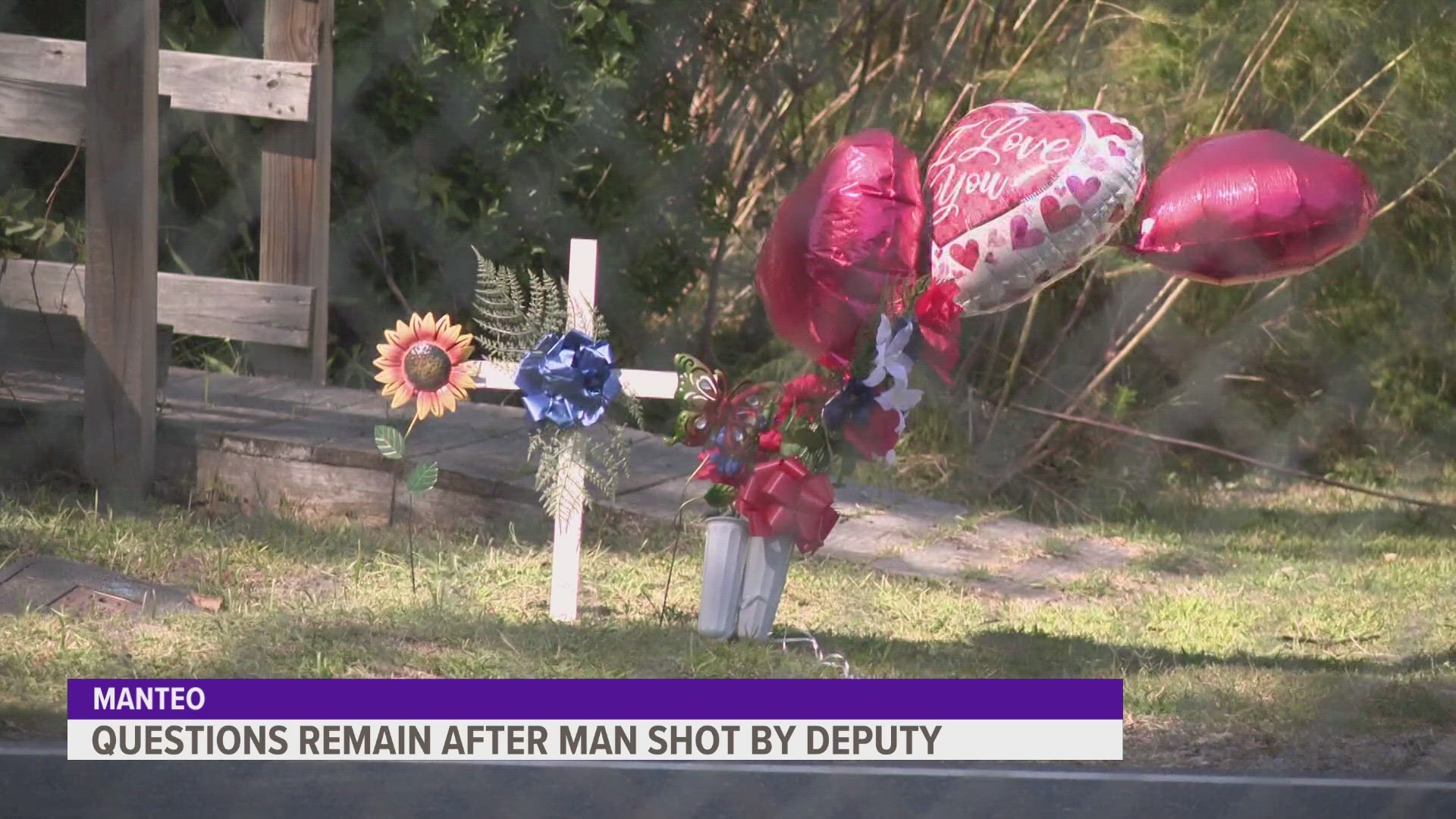MANTEO, N.C. — Body camera video has played a crucial part in national stories involving police responses. In some cases, they’ve shown heroics like the law enforcement response following the Covenant School mass shooter in Nashville. In other cases, it’s revealed alleged wrongdoing in cases like Tyre Nichols, who was beaten to death by five Memphis police officers.
But the access to this critical tool is surrounded by restrictions in North Carolina, as the state's Bureau of Investigation looks into an officer-involved shooting on the Outer Banks.
Monday night, a Dare County Sheriff's deputy shot and killed 44-year-old Demetrius Selby after reports of a person trespassing along Burnside Road on Manteo with a knife. His family is now questioning the notion he was a trespasser, considering he was on family property.
"He was not trespassing, he’s been there for years. Just one of our family properties, so he’s been going there most of his life," his sister Ebony Selby told 13News Now.
Family remarked outside the roadside memorial Tuesday that they are wanting to see what the body camera footage will show about the incident. In the Tar Heel state, that request is easier said than done.
According to state code, body camera footage is not considered a public or personnel record.
13News Now submitted Freedom of Information Act requests through the Dare County Sheriff's Office, hoping to obtain copies of, or inspect the following:
- Body camera video of the night of 10/2/23
- Incident report documentation of the law enforcement response
- 911 and emergency dispatch calls
The Dare County Sheriff's Office denied the body camera request, citing the state's body camera statute.
"Body camera footage is not releasable without a proper court order that has been issued by the court," a spokesperson wrote.
This is in addition to a denial of incident reports and documentation by the agency because of the ongoing investigation through the North Carolina State Bureau of Investigation.
This is a familiar situation for northeastern North Carolina. In 2021, Pasquotank County deputies shot and killed Andrew Brown Jr. while serving warrants in Elizabeth City, a nationally-covered case that sparked community outrage and weeks of protests on the small city's streets.
At the time, a looming question that surrounded the case was the access of body camera video during the attempted arrest. A judge ultimately denied the release of that footage within the first days of the case's fallout. Copies of the body camera footage were never publicly released, only privately shown to Brown's family and attorneys, and was eventually displayed on a projector for media by former District Attorney Andrew Womble.
RELATED: One Year Later | A look at changes in Elizabeth City on the anniversary of Andrew Brown Jr.'s death
The Selby family faces a similar decision moving forward. Under state code, videos can be "disclosed", which means being made available for viewing or listening to by a person who meets certain criteria.
According to N.C.G.S 132-1.4A:
The head of the custodial law enforcement agency may only disclose a recording to the following:
(1) A person whose image or voice is in the recording.
(2) A personal representative of an adult person whose image or voice is in the recording, if the adult person has consented to the disclosure.
(3) A personal representative of a minor or of an adult person under lawful guardianship whose image or voice is in the recording.
(4) A personal representative of a deceased person whose image or voice is in the recording.
(5) A personal representative of an adult person who is incapacitated and unable to provide consent to disclosure.
Media can request the release of the video, but have to do so through a court order.
State code goes on to read:
Recordings in the custody of a law enforcement agency shall only be released pursuant to court order. Any custodial law enforcement agency or any person requesting release of a recording may file an action in the superior court in any county where any portion of the recording was made for an order releasing the recording. The request for release must state the date and approximate time of the activity captured in the recording, or otherwise identify the activity with reasonable particularity sufficient to identify the recording to which the action refers. The court may conduct an in-camera review of the recording. In determining whether to order the release of all or a portion of the recording, in addition to any other standards the court deems relevant, the court shall consider the applicability of all of the following standards:
(1) Release is necessary to advance a compelling public interest.
(2) The recording contains information that is otherwise confidential or exempt from disclosure or release under State or federal law.
(3) The person requesting release is seeking to obtain evidence to determine legal issues in a current or potential court proceeding.
(4) Release would reveal information regarding a person that is of a highly sensitive personal nature.
(5) Release may harm the reputation or jeopardize the safety of a person.
(6) Release would create a serious threat to the fair, impartial, and orderly administration of justice.
(7) Confidentiality is necessary to protect either an active or inactive internal or criminal investigation or potential internal or criminal investigation.
(8) There is good cause shown to release all portions of a recording.

